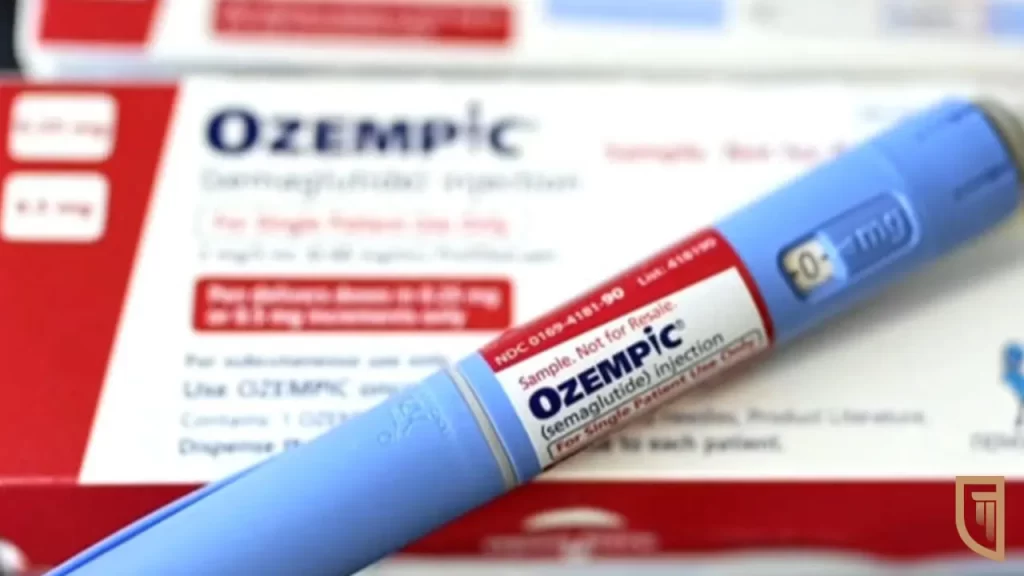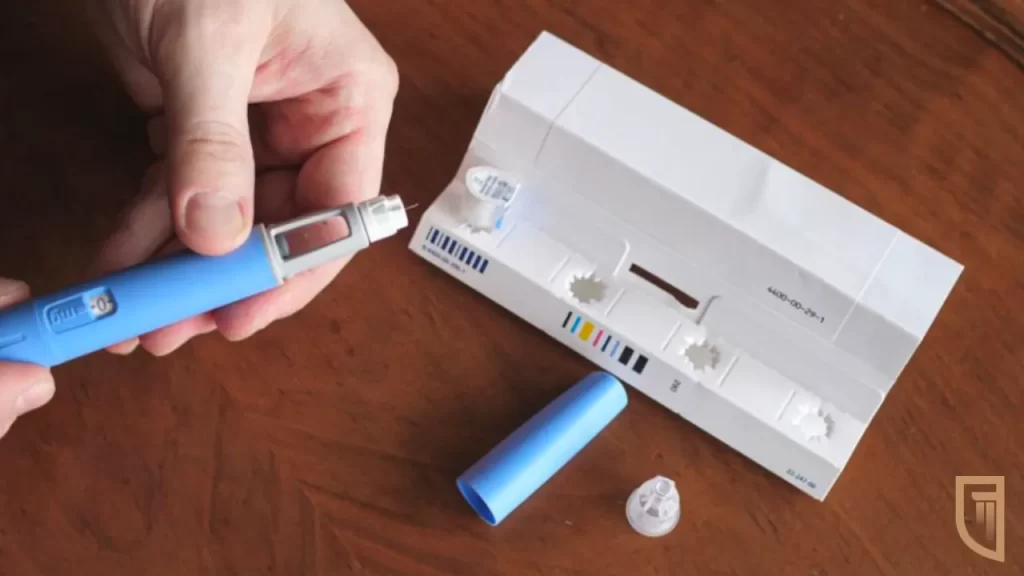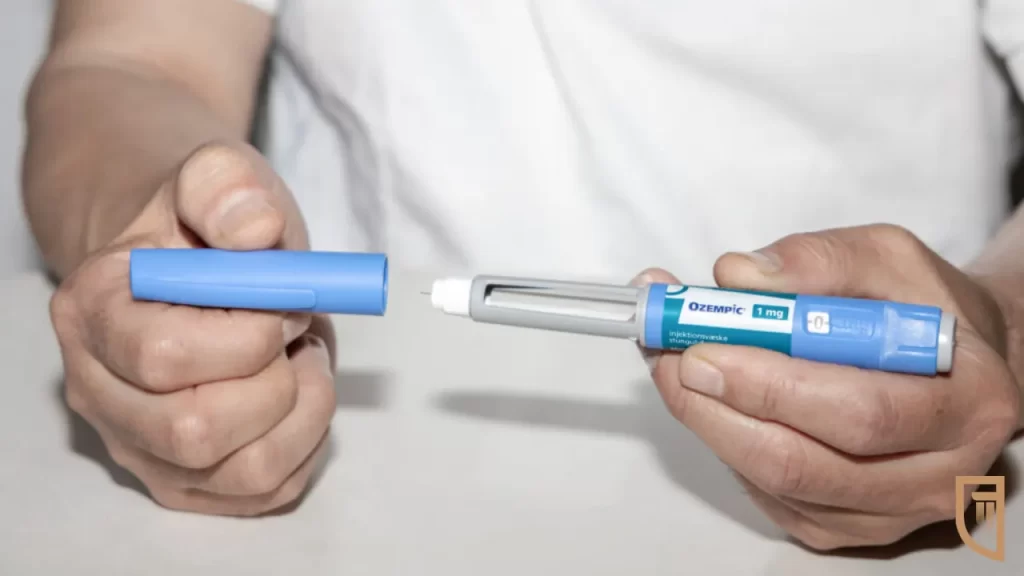Zantac Lawsuit
Welcome to our comprehensive guide on the Zantac lawsuit. This section provides essential information for anyone affected by Zantac, particularly those who have used the drug and are now facing health complications like cancer. Here, you will find detailed insights into the ongoing legal actions against manufacturers of Zantac, the basis of these lawsuits, updates on litigation proceedings, and how affected users might be eligible for compensation.

Written by: Sarah from Legal Claim Assistant Last updated: April 25, 2024
Table of Contents
Understanding the Zantac Lawsuit
The Zantac Lawsuit encompasses numerous legal actions brought against manufacturers of the popular heartburn medication Zantac (ranitidine hydrochloride), which was widely used until concerns about its safety led to global recalls. The central allegation in these lawsuits is that Zantac contains high levels of N-Nitrosodimethylamine (NDMA), a potent carcinogen, which poses significant cancer risks to users.
What Led to the Zantac Litigation?
The litigation began after the Food and Drug Administration (FDA) detected unacceptable levels of NDMA in Zantac and its generic versions, prompting an investigation. Research indicated that the ranitidine molecule could break down into NDMA when exposed to high temperatures, potentially during storage or inside the human body. This discovery led major pharmacies and stores to stop selling Zantac and similar products, significantly impacting patients who relied on the drug for managing conditions like acid reflux and gastroesophageal reflux disease.
Key Allegations Against Manufacturers
Plaintiffs in the Zantac lawsuits claim that manufacturers like Sanofi, Boehringer Ingelheim, and Pfizer failed to warn about the cancer risks despite knowing the potential for ranitidine to convert to NDMA. Lawsuits allege that long-term exposure to this carcinogen has led to various cancers, including stomach, liver, and gastric cancers, particularly in patients who developed cancer after taking Zantac.
The lawsuits also question the adequacy of the drug’s testing by manufacturers and accuse them of putting profits over safety. The multidistrict litigation (MDL), presided over by Judge Rosenberg in the Southern District of Florida, consolidates thousands of cases, with bellwether trials set to determine patterns in verdicts and potential settlements.
As these legal battles continue, the ramifications are substantial, not only influencing Zantac’s future but also shaping regulatory practices and the pharmaceutical industry’s responsibility towards consumer safety. Plaintiffs and their lawyers are pushing for accountability and substantial compensation for the harm suffered due to negligence by Zantac manufacturers.

The Link Between Zantac and Cancer
The Zantac Lawsuit is predominantly centered around the allegations that the widely used heartburn medication Zantac (ranitidine) and its generic versions can cause various types of cancer due to contamination with N-Nitrosodimethylamine (NDMA), a known carcinogen. This link has led to numerous lawsuits filed by victims who developed cancer after using Zantac.
Scientific Evidence on NDMA
The concern with NDMA in Zantac emerged after tests conducted by the Food and Drug Administration (FDA) and independent laboratories revealed that ranitidine, the active ingredient in Zantac, could degrade into NDMA under certain conditions, such as when exposed to high temperatures. NDMA’s presence was found to be significantly above the FDA’s permissible intake limits, which is particularly alarming since it is classified as a probable human carcinogen by various health authorities.
This evidence led the FDA to request the removal of all ranitidine products from the market, citing the potential risk to public health. Subsequent studies and reviews have focused on how NDMA could form from ranitidine under the conditions it might be stored or even once ingested into the human body where it reacts with stomach acids and other substances.
Need help filing a Zantac Claim?
How Zantac Became a Legal Battle
The legal battles surrounding Zantac, a widely used heartburn medicine, transformed it from a trusted household name into the subject of one of the largest pharmaceutical litigations due to its link to cancer risks. The transition of Zantac from a market leader to a legal pariah is a complex tale involving numerous stakeholders, including big pharma companies, regulatory bodies, and thousands of plaintiffs.
Timeline of Zantac on the Market
Zantac, known generically as ranitidine, was introduced in the 1980s and quickly became the go-to medication for treating conditions like gastroesophageal reflux disease and other stomach issues. Manufactured by companies like Sanofi and Boehringer Ingelheim, Zantac was celebrated for its effectiveness in reducing stomach acid and was available both over-the-counter and in prescription form.
However, the trajectory of Zantac took a dramatic turn when tests revealed that the drug could break down into N-nitrosodimethylamine (NDMA), a potent carcinogen, especially when stored at higher temperatures or when ingested, it interacts with certain foods and the human body’s chemistry. The FDA issued alerts and eventually called for the removal of all ranitidine products from the market in 2020, citing the unacceptable levels of NDMA.
Major Parties Involved in Zantac Lawsuits
The Zantac lawsuits have entangled a variety of major parties across multiple jurisdictions. At the forefront are the plaintiffs, individuals who used Zantac and later developed cancers such as gastric, liver, and other types related to NDMA exposure. These victims have initiated zantac lawsuits claiming that the manufacturers failed to warn about the cancer risks associated with the heartburn medicine.
Key defendants in the litigation include major pharmaceutical giants like Sanofi, Boehringer Ingelheim, and Pfizer, which are accused of marketing the over-the-counter and prescription forms of ranitidine under the brand name Zantac despite knowing the risks posed by the active ingredient. These companies face class action lawsuits and individual zantac claims across state courts and a consolidated multidistrict litigation (MDL) overseen by Judge Rosenberg in Florida.
Legal representatives, from well-established law firms specializing in mass torts, represent both sides, navigating complex proceedings that include potential settlements, jury trials, and FDA rulings concerning the safety of ranitidine products.
Pharmaceutical Companies Under Scrutiny
The ongoing Zantac lawsuits have placed major pharmaceutical companies like Sanofi, Pfizer, and Boehringer Ingelheim under intense scrutiny. These companies, defendants in both class action lawsuits and individual claims, are criticized for allegedly selling Zantac and its generic versions despite knowing the risks posed by the active ingredient ranitidine, which studies show can form high levels of NDMA when exposed to certain conditions, potentially causing cancer. With litigation spanning from California state court to Florida, and overseen by the FDA, the trials and potential settlements are closely watched, marking a critical phase in pharmaceutical litigation.

Health Risks Associated with Ranitidine
Ranitidine, the active ingredient in Zantac, has been at the center of extensive Zantac litigation after studies revealed that it could degrade into N-Nitrosodimethylamine (NDMA), a substance known to cause cancer. This discovery prompted a slew of Zantac lawsuits alleging that the drug manufacturers, including major pharmaceutical companies like Sanofi and GlaxoSmithKline, failed to warn users about the cancer risks. As Zantac lawsuits pile up in state courts and multidistrict litigation (MDL) in Florida, victims seek justice and potential settlement for their cancer diagnoses linked to long-term use of over-the-counter and prescription forms of Zantac ranitidine.
Victims involved in Zantac suits and their attorneys are scrutinizing medical records to establish a direct link between the intake of generic ranitidine and the development of various cancers. This litigation has seen numerous Zantac lawsuit updates, with the first trial and rulings anticipated to set precedents for thousands of plaintiffs. The ongoing class action lawsuit emphasizes not just compensation but also the need for pharmaceutical accountability and stringent safety measures.
Gastroesophageal Reflux Disease and Zantac Use
For many patients, taking Zantac was a common remedy for managing symptoms of gastroesophageal reflux disease (GERD). However, the subsequent halt in selling Zantac and its brands has left many to reconsider their treatment options. This transition was fueled by the litigation’s revelations, influencing both healthcare practices and patient safety protocols. As the legal battles unfold, those affected continue to watch closely, hoping for a resolution that brings about both acknowledgment of their plight and a safer medical landscape.
Multidistrict Litigation in Zantac Cases
The multidistrict litigation (MDL) for Zantac cases consolidates lawsuits from across the United States, addressing claims that the drug, containing the active ingredient ranitidine, causes cancer. Plaintiffs allege that Zantac manufacturers like Sanofi and GlaxoSmithKline failed to warn about the cancer risks associated with ranitidine, leading to numerous cancer diagnoses. This centralized MDL process in Florida is crucial for managing pre-trial proceedings efficiently, dealing with common factual issues before different lawsuits potentially go to trial. It streamlines the discovery phase, allowing for a consistent ruling on pretrial motions, which could significantly influence the outcomes of individual zantac lawsuits regarding settlements or verdicts.
Role of District Judge Robin Rosenberg
Judge Robin Rosenberg presides over the Zantac MDL in Florida, playing a pivotal role in guiding the litigation process. Her rulings on key issues, such as the admissibility of scientific evidence and the validity of plaintiff claims about generic ranitidine and brand name Zantac, are vital components that will shape the path to trial and potential resolutions for thousands of zantac lawsuit victims.
Find out how much your Zantac payout could be:
Bellwether Trials and Their Significance
Bellwether trials in the Zantac litigation serve as critical test cases that may predict the outcome of thousands of similar lawsuits alleging that Zantac, a widely used drug for gastroesophageal reflux disease, causes cancer. These trials are crucial because they help both parties gauge the response of juries to evidence and testimonies regarding the cancer risks associated with the active ingredient ranitidine. As such, they can lead to significant Zantac settlements or shape the strategies of subsequent cases. Held in federal and state courts, these trials address claims by plaintiffs that manufacturers like Sanofi failed to warn about the risks of cancer from taking Zantac, particularly those related to over-the-counter forms of the medication. The outcomes of these bellwether trials could compel Zantac manufacturers to negotiate settlements or strengthen the plaintiffs’ resolve to go to trial. Law firms specializing in mass torts closely monitor these trials to advise their clients effectively, preparing for any potential landmark rulings that could influence future litigation tactics.
What to Expect From Early Trials
Early bellwether trials in the Zantac lawsuit provide a preliminary look at how juries might react to the allegations that Zantac can cause various cancers. These trials will test the strengths and weaknesses of the plaintiffs’ claims and the defenses of the defendants. Observers and participants can expect detailed examinations of scientific evidence, expert testimonies, and the personal stories of Zantac lawsuits victims. The verdicts from these trials, while not binding on all subsequent cases, will set important precedents and may lead to an increased willingness to reach a comprehensive settlement.

Evaluating Your Eligibility for a Zantac Lawsuit
Determining if you can join a Zantac lawsuit involves several key considerations, particularly if you used the drug for gastroesophageal reflux disease and later received a cancer diagnosis. Patients who used Zantac and developed cancer may qualify as plaintiffs in this class action lawsuit, where the medication’s link to cancer risks is the central issue. Law firms specializing in drug litigation can provide a comprehensive review of your medical history and the specifics of your Zantac use to establish your eligibility for a potential Zantac settlement.
Criteria for Joining the Litigation
To join the Zantac litigation, plaintiffs must prove they took the drug, ideally prescribed or as an over-the-counter form, and subsequently developed cancer potentially caused by the drug. The state courts, guided by outcomes from bellwether trials and MDL rulings, will examine evidence of Zantac’s risks presented by attorneys, focusing on the drug’s carcinogenic potential and the defendants’ knowledge of it.
Find out if you qualify:
Navigating the Legal Process
Navigating the legal process in a Zantac lawsuit requires understanding the steps involved from initial filing to potential settlement. Patients who developed cancer after taking Zantac may consider legal action against manufacturers like Sanofi, which involves several stages handled in state courts and potentially influenced by MDL rulings. It’s crucial to collaborate with a law firm experienced in pharmaceutical litigation to ensure all procedural requirements are met and to effectively advocate for your rights as a plaintiff.
Steps to Take When Filing a Lawsuit
Consultation with an Attorney: Find a lawyer who specializes in pharmaceutical litigation. Discuss your case, particularly if you have a diagnosis of cancer linked to Zantac use.
Case Evaluation: Your attorney will evaluate the details of your Zantac usage and any medical records linking it to your cancer diagnosis.
Filing the Complaint: Your lawyer will file a legal complaint in the appropriate state court, formally starting the lawsuit process.
Discovery Phase: Both sides exchange information and gather evidence, including medical records and expert testimonies.
Participation in Bellwether Trials: If your case is part of an MDL, it may be selected as a bellwether trial to help determine potential outcomes in similar cases.
Negotiating Settlements: Depending on the progression of your case and the strength of the evidence, your attorney may negotiate a settlement with the defendant before reaching trial.
Trial: If a settlement is not reached, your case may go to trial where a verdict will be decided.
Each step in this process is critical and requires careful management by experienced lawyers to effectively represent the interests of plaintiffs in Zantac cases.
Potential Outcomes and Settlements
In Zantac cases, potential outcomes and settlements hinge on the specifics of each case, including the severity of harm suffered by plaintiffs who developed cancer potentially caused by Zantac. State courts and MDL processes will heavily influence these decisions. Zantac settlements may vary greatly, with factors like medical records and the duration of Zantac use playing key roles. Outcomes from bellwether trials provide a precedent, helping to shape expectations for subsequent cases. A ruling favorable to plaintiffs can lead to substantial settlements from defendants like Sanofi, aimed at compensating for the harm caused by their products.
Understanding Compensation Structures
Compensation in Zantac litigation typically reflects the severity of the plaintiff’s condition and the impact on their quality of life. Structures may include:
Compensatory Damages: Cover medical bills, lost wages, and pain and suffering.
Punitive Damages: Aimed at punishing the defendant for negligence. Lawyers play a critical role in negotiating these terms, ensuring that the settlements reflect the justice and support that patients deserve.
Need help with your Claim?
Life After a Zantac Cancer Diagnosis
Receiving a cancer diagnosis after using Zantac can be a life-altering event, profoundly impacting patients and their families. As medical and legal battles unfold, living with the diagnosis involves managing not only the physical ailments associated with cancer but also the psychological and financial burdens. Many plaintiffs who developed cancer seek compensation through Zantac settlements, which can alleviate some financial strains such as medical bills and lost income.
Navigating life post-diagnosis requires a robust support system. Engaging with patient advocacy groups and connecting with others through community support networks can offer emotional solace and practical advice. Additionally, maintaining detailed medical records becomes crucial, as these documents are essential for ongoing medical care and any legal actions within state courts or as part of multidistrict litigation (MDL).
Resources and Support for Patients
Patients facing the aftermath of a Zantac-related cancer diagnosis have various resources available. Law firms specializing in pharmaceutical litigation often provide guidance on both the legal and medical aspects of living with a diagnosis. These firms can help patients understand the complexities of class action lawsuits and the potential for settlement from companies like Sanofi, the maker of Zantac. Additionally, healthcare providers can refer patients to counseling services and support groups, which are invaluable for managing the emotional aspects of cancer treatment.
Future of Heartburn Medications Post-Zantac
The landscape of heartburn medications has been irrevocably changed by the withdrawal of Zantac from the market due to its link to cancer-causing agents. This has prompted both patients and healthcare providers to seek safer alternatives for managing gastroesophageal reflux disease (GERD) and other related conditions. The stop selling Zantac has led to increased scrutiny of all heartburn medications, with regulatory bodies and manufacturers working to ensure that new products are safe and effective.
Safer Alternatives and Advances in Treatment
In the wake of Zantac’s market exit, several safer alternatives have gained prominence. These include both over-the-counter and prescription medications that do not contain the problematic ingredients found in Zantac. Advances in medical research have also led to the development of new drugs that target GERD with reduced side effects and lower risks of causing cancer. Furthermore, medical professionals are increasingly recommending lifestyle and dietary changes as part of a comprehensive treatment plan for heartburn, reducing the reliance on pharmaceutical solutions.
The focus on patient safety and the efficacy of heartburn treatments continues to drive innovation in the field, with ongoing bellwether trials and litigation reminding pharmaceutical companies and regulators of the need for vigilance. As rulings from state courts and the findings of MDLs influence the market, the future of heartburn medication looks toward safer and more reliable treatment options for patients.
How Legal Claim Assistant can help you
If you or a loved one has been affected by using Zantac and are considering a lawsuit due to the severe health implications, including cancer diagnoses linked to its active ingredient ranitidine, Legal Claim Assistant is here to guide you through every step of your legal journey. From filing a Zantac lawsuit to understanding the intricacies of multidistrict litigation, our comprehensive services ensure you are well-prepared and supported.
Legal Claim Assistant specializes in navigating the complex landscape of Zantac lawsuits, particularly for victims who have developed cancer from high levels of NDMA found in the drug when exposed to high temperatures. Our team stays updated with the latest Zantac lawsuit updates, including decisions from key figures like District Judge Robin Rosenberg and the developments in bellwether trials that could influence the outcome of your case.
Services Offered:
Filing Claims: We help you file Zantac claims efficiently, ensuring all necessary medical records and evidence are accurately presented.
Litigation Support: As Zantac litigation progresses through various stages, including potential settlements and jury trials, we provide expert legal advice and representation.
Settlement Negotiation: Our experienced attorneys work tirelessly to secure a potential settlement that reflects the severity of your health issues and the impact on your life.
Legal Claim Assistant also addresses cases involving generic versions of ranitidine, handling everything from initial claims to final verdicts across state courts, including the Southern District of Florida and California state court. We collaborate closely with law firms specializing in pharmaceutical litigation to offer the most effective representation possible.
Whether it’s understanding how to manage gastroesophageal reflux disease (GERD) after stopping Zantac, dealing with the implications of acid reflux, or navigating the food and drug administration’s regulations, Legal Claim Assistant is your dedicated partner. Our goal is to ensure you feel informed, supported, and confident as your case moves through the legal system, helping you achieve justice and compensation for the harm suffered.
Find out if you qualify:
Written by:
Nicky from LegalClaimAssistant.com
LegalClaimAssistant.com simplifies the process of pursuing legal action. Access information, lawsuit guides, and updates on drugs, products, and other matters that may impact you.
4 References
- Holpuch, Amanda. “Two Army Veterans Awarded $110 Million in 3M Earplug Lawsuit.” The New York Times. January 28, 2022. Retrieved on May 12, 2022 from https://www.nytimes.com/2022/01/28/us/veterans-earplugs- 3m-lawsuit.html
- LexisNexis® Legal Insights. “Product liability & strict liability.” January 06, 2021. Retrieved on May 5, 2022 from https://www.lexisnexis.com/community/insights/legal/b/thought-leadership/posts/understanding-the- interplay-between-strict-liability-and-products-liability
- National Highway Traffic Safety Administration. “Letter to Tesla: Full Self-Driving Software May Cause Crash.” Retrieved from: https://static.nhtsa.gov/odi/rcl/2023/RCAK-23V085-2525.pdf. Accessed on February 17, 2023.
- Unified Parkinson’s Advocacy Council. “Paraquat Dichloride Registration Review.” July 24, 2017. Retrieved on May 12, 2022 from https://files.michaeljfox.org/Paraquat_letter_FINAL.pdf



